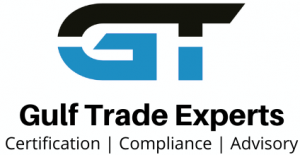HCM CITY — Strict compliance with Halal requirements in production and packaging would increase the popularity of Vietnamese exports to the estimated 1.83 billion Muslims worldwide, experts have said.
Mohammed Omar, lead auditor of the Halal Certification Agency Viet Nam (HCA Viet Nam), said the global Halal market, with products made under the requirements of the Muslim community, had a total value of US$2.77 trillion.
“Halal certification is a global scheme for product or services. It is an independent process to verify halal and haram ingredients and purity conditions required to meet Qur’an and Shariah standards,” said Omar.
Halal (permitted) and haram (prohibited) are Arabic universal terms applied to all facts of life and commerce. Shariah is defined as a legal framework under Islamic Law.
“Halal products are the ones verified to have only halal ingredients on it, thus ensuring pure conditions during production,” said Omar.
Speaking at a workshop held yesterday in HCM City by the EU-Viet Nam Multi-bilateral Trade Assistance Project (MUTRAP III) and the Ministry of Industry and Trade, experts said raising exporters’ awareness of Halal standards was crucial for market penetration.
Omar said that many people did not understand the meaning of Halal products.
“Muslims don’t eat pork. But Halal products are not just non-pork products; they must also meet the hygienic and safety requirements of the Muslim community,” said Ahmad Shanizam, trade counselor at the Consulate General of Malaysia in HCM City.
Shanizam encouraged Vietnamese businesses to understand Halal requirements to enhance exports to the Muslim market, which includes Indonesia and Malaysia in ASEAN, Saudi Arabia, Kuwait, and even the US and the UK.
“Malaysians would love to travel to Viet Nam to shop if products here met Halal requirements,” he said, adding that Muslims represent 60 per cent Malaysia’s population.
According to Shanizam, the Halal market in Malaysia exists in many sectors, including food, cosmetics, leather, Islamic finance, media and logistics.
Tran Xuan Giap of the HCA Viet Nam said the Halal requirements, represented by the ICCI-IHIA Halal Standard DIHAS 0070-2011, included those on the food processing industry, product development steps, procurement, reception and storage, raw ingredients, personal and staff hygiene, and packaging.
Businesses in need of Halal certification are encouraged to submit a Halal application to HCA Viet Nam.
The process required an adequacy audit, on-site audit, Halal certificate issuance and surveillance audits before products were sealed with Halal logos for products, Giap said.
HCA Viet Nam is one among 111 recognised Halal organisations worldwide.
A representative from the ministry’s Department of Asia-Pacific Market encouraged Vietnamese businesses to be aware of Halal requirements because some countries misuse these as a trade barrier, which is a violation of World Trade Organisation (WTO) commitments and free-trade agreements. — VNS



